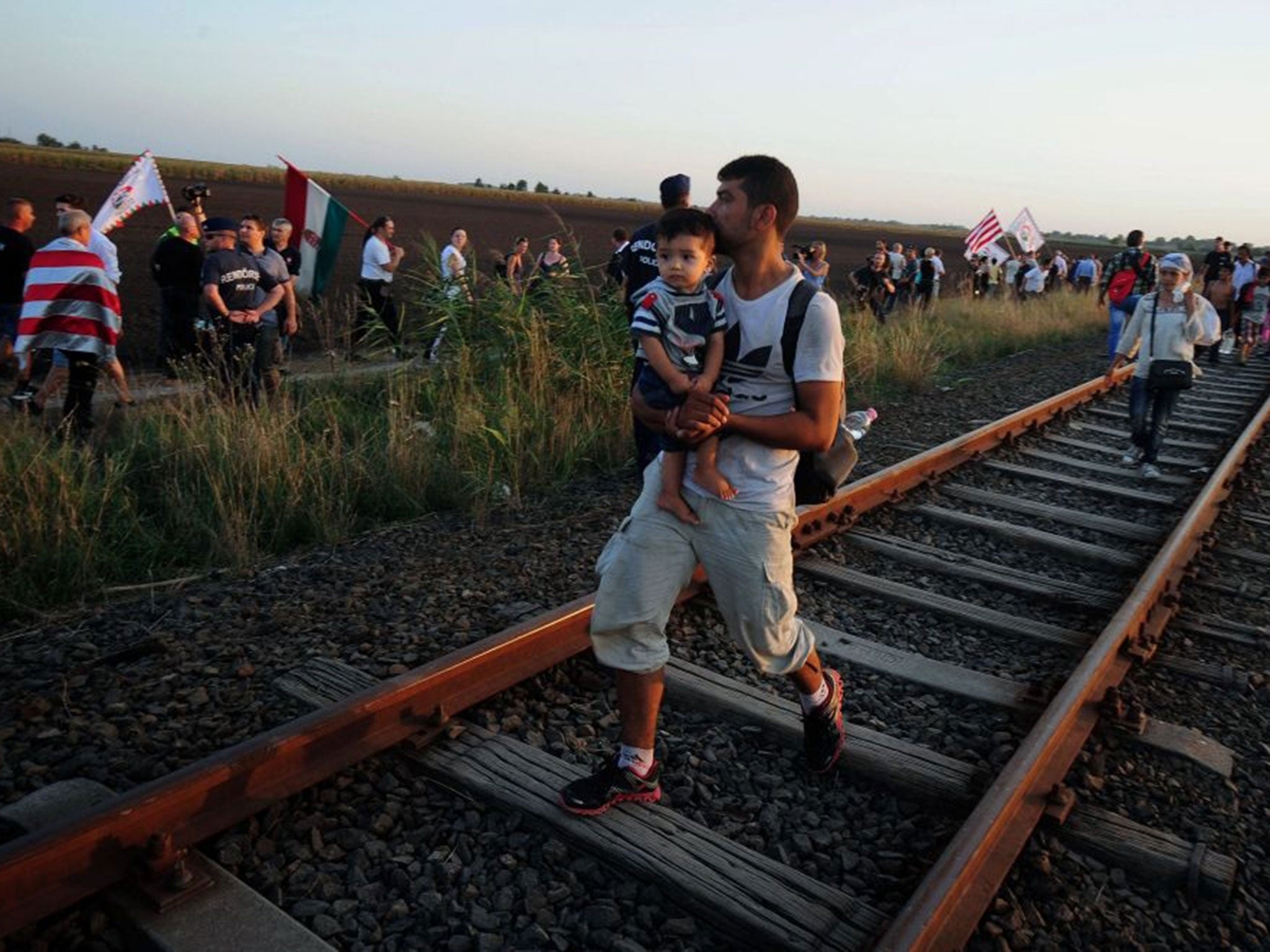This five point plan for settling refugees could prevent another tragedy like Aylan Kurdi's death
People will make desperate, dangerous journeys as long as what is behind them is more terrifying that what is in front

Your support helps us to tell the story
From reproductive rights to climate change to Big Tech, The Independent is on the ground when the story is developing. Whether it's investigating the financials of Elon Musk's pro-Trump PAC or producing our latest documentary, 'The A Word', which shines a light on the American women fighting for reproductive rights, we know how important it is to parse out the facts from the messaging.
At such a critical moment in US history, we need reporters on the ground. Your donation allows us to keep sending journalists to speak to both sides of the story.
The Independent is trusted by Americans across the entire political spectrum. And unlike many other quality news outlets, we choose not to lock Americans out of our reporting and analysis with paywalls. We believe quality journalism should be available to everyone, paid for by those who can afford it.
Your support makes all the difference.The most famous bit of John Donne’s well-known poem is the line ‘Never send to know for whom the bell tolls; it tolls for thee’. But today the more pertinent, and haunting, section reads: ‘Every man is a piece of the continent, a part of the main. If a clod be washed away by the sea, Europe is the less’.
Europe is the less today, because of the death of one boy. He was not from our continent, but he is a piece of the main. Aylan Kurdi from Kobane in Syria was washed up on a European shore and our continent is struggling to understand why. Many of us are asking how this could happen here in 2015. We were already reeling from the news that families died on a European road last week, passing their last moments suffocating in the back of a refrigerated truck. This summer we have seen reports of drownings as desperate survivors climb on rescue boats that the Royal Navy told Save the Children are often little more than ‘lilos with sides’.
Enough.
It doesn’t have to be this way. Our continent can - and must - be better than this. No one policy can deal with the biggest refugee crisis since the Second World War, but we at Save the Children believe that if European ministers agreed a five point plan at their meeting on the 14th September, we could change millions of lives.
So what does this five point plan entail?
First, a regional response. People will make desperate, dangerous journeys as long as what is behind them is more terrifying that what is in front. So we need regional plans for sub-Saharan Africa and the Middle East which tackle some of the root causes which make people flee and provide enough aid to help support them with food, shelter and education. Britain is doing its bit here but others are not. Food rations for Syrian refugees have been cut in half in Lebanon and millions of children who fled the war are out of school.
Second, search and rescue efforts must be maintained. Since Europe decided to restart the rescue, thousands of lives have been saved - not least by Britain’s own Royal Navy. We must ensure that the capability and mandate of these efforts are equal to the task. The priority remains stopping people from drowning, not border control.
Third, we need safe and legal routes in to Europe for asylum seekers. Traffickers and smugglers thrive when other routes to safety are closed to desperate people. The risks are particularly acute for children, many of whom have already suffered appalling torture, abuse and exploitation, only to be vulnerable to more when they get here.
Fourth, we need proper reception centres to process asylum seekers and separate out economic migrants, at the point of arrival. Children are the most vulnerable in the midst of the current chaos. Services in Italy are overwhelmed and are still getting off the ground in Greece, Serbia and Hungary. A proper system which can adequately feed, house and care for refugees, particularly families and lone children must be urgently scaled up. Funding must be pooled across Europe, without leaving the countries of first arrival like Italy and Greece to shoulder the burden alone.
And finally we need resettlement. There is no way around the fact that European countries, including Britain, must do more to settle refugees here in the UK. Some countries have already stepped up and Germany in particular should be applauded for its humane stance. But we should also recognise that the numbers facing Europe are as nothing compared to the tragedy that has befallen Syria and its neighbouring countries.
Every European country has a part to play. The UK government has done particularly well on aid and search and rescue, and has a proud history when it comes to refugees. But they are falling behind now on resettlement. To date, we have taken just a tiny fraction of Syrian refugees compared to the numbers given asylum by other European nations, let alone the millions now living in Lebanon, Turkey and others in the region.
This is a moment of decision for our nation and our continent. As we make these momentous choices - to turn our backs or reach out our hands - I hope we remember the devastating image we awoke to on the front of yesterday’s Independent and do the right thing.
Join our commenting forum
Join thought-provoking conversations, follow other Independent readers and see their replies
Comments